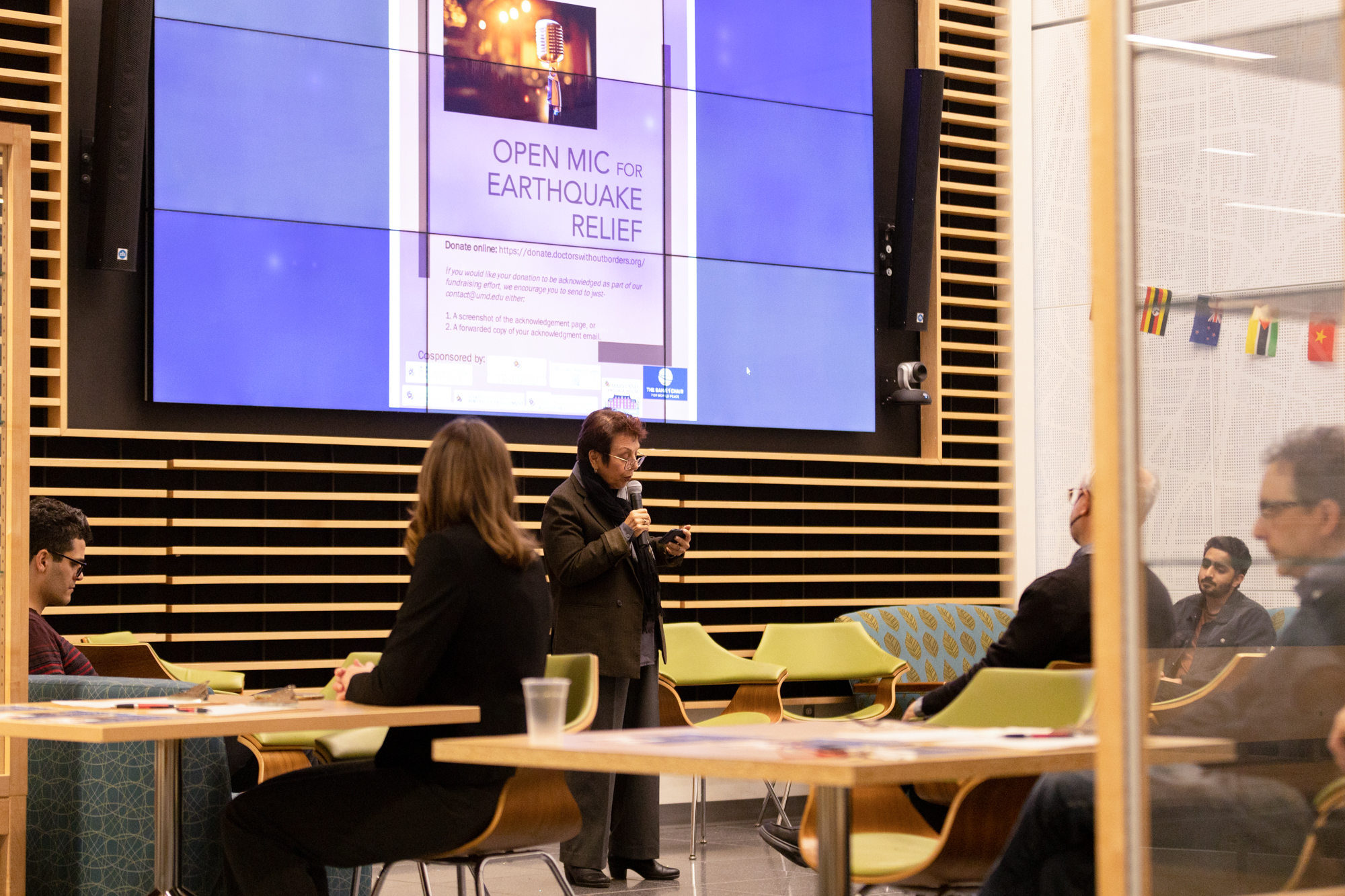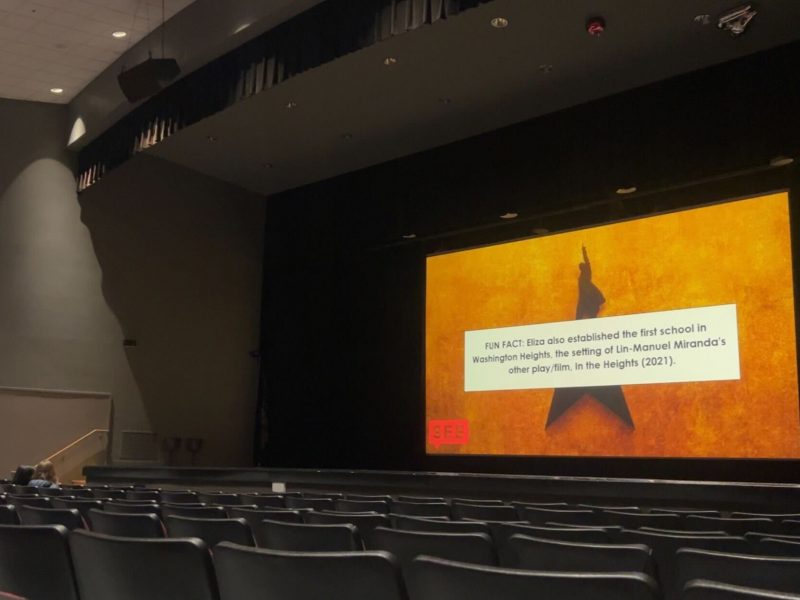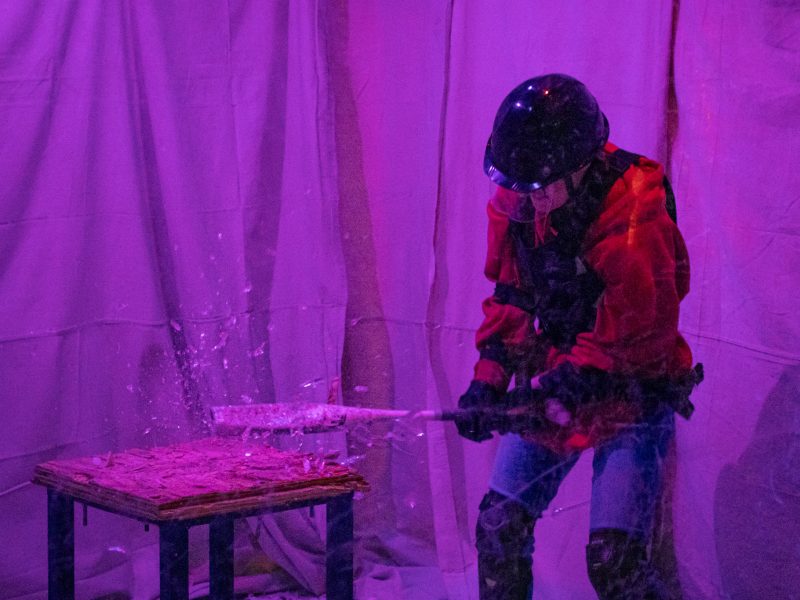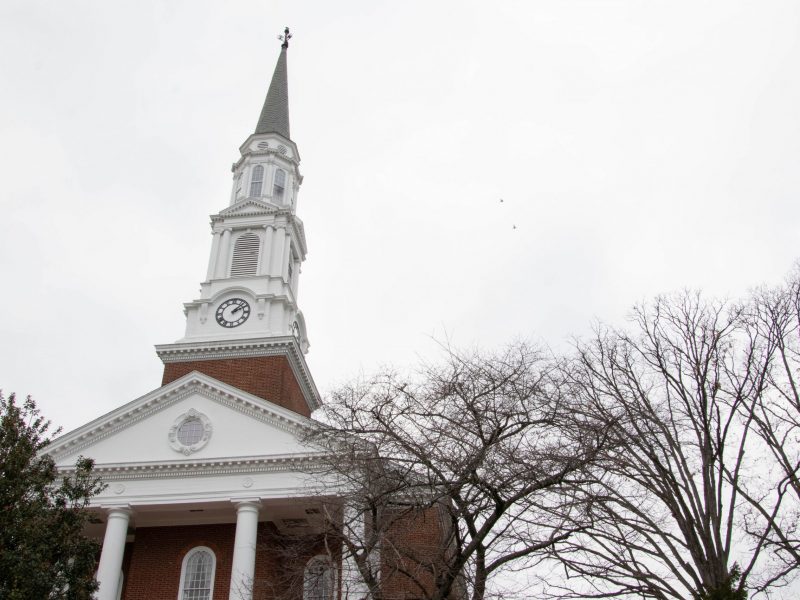Around the time a devastating 7.8 magnitude earthquake hit Turkey and Syria on Feb. 6, Rachel Schine, an Arabic and religious studies assistant professor at the University of Maryland, was discussing the university’s history of multilingual open mic events with colleagues.
Although not serialized events, Schine said faculty, such as Fatemeh Keshavarz, director of the university’s Roshan Institute for Persian Studies, would host events where members of the Middle Eastern and Central Asian community could relax and share their heritage.
“Those [events] have been spaces where students and faculty and staff speak a myriad of languages and don’t necessarily get to hear them in public space on campus very often,” Schine said. “[Keshavarz] brought literature and had a cafe-lounge-salon-type of experience of just sharing that in a relaxed and safe environment and doing so in ways that were very moving for other people.”
This history of communal space and connection through language inspired Schine to pitch an idea for an open mic fundraising event for earthquake relief. She was further pushed to do the event after learning about the Persian studies program open mic for International Women’s Day.
[The Clarice’s BlackLight Summit holds space for risk and rage to reach rejuvenation]
Schine and Maxine Grossman, director of the Meyerhoff Center for Jewish Studies, reached out to other on-campus organizations, such as the Arabic department, the Roshan Institute, the Bahá’í Chair for World Peace, Anwar Sadat Chair for Peace and Development and the Language House to organize the event. Proceeds from donations will go to Doctors Without Borders, an organization currently on the ground in Turkey and Syria providing medical care.
“The event itself is meaningful, not just in a way that can help people far away, maybe this will help people close by to feel a little more connected,” Grossman said.
The poems presented varied in their messages, allowing participants to express a range of emotions.
“I wanted to choose a poem that talked about hope and something that was really light,” said Donia Galarowicz, a graduate student studying interpretation and translation. “ I found this [poem] called ‘Feather,’ and it’s originally in Turkish … I thought it was really beautiful.”
Keshavarz, a poet herself, performed an original poem titled “An Ode to American: the World will Dare to Love You.” She wrote this piece during the mid-2000s when there was worry that war in the Middle East would spread into Iran. Her piece paired these fears of the United States moving into Iran alongside dreams for a future where the U.S. can become a “beacon of light” in the world.
[‘Cheerleader, Offbeat, Anthem’: Comedian Atsuko Okatsuka wows crowd at SEE’s All Niter]
“If you come with your hands, not a rifle, and you’re just embracing the world, then the world will really love you … That was the incentive because I love the American culture, which I have embraced as an Iranian-American, and that’s reflected in the fact that I write my poetry in English now,” she said.
The event was meant to provide an opportunity for healing and reflection for the university community. Schine said that in the increasingly global world we live in, it’s important to remember the humanity of others.
“I think that increasingly, we live in a global and local world, and sometimes we have too much connectivity … It can feel overwhelming when horrible things happen far away, even more overwhelming if they’re happening to you or people you know,” Schine said. “I think that when we remind ourselves of each other’s humanity, it’s healing for everybody in some tiny way.”



